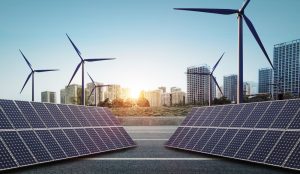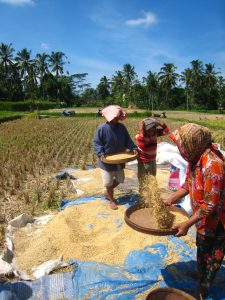Jakarta – Inequalities in the capacity of Asia Pacific countries to deal with climate change are weakening the region’s economic resilience. A new report by the UN Economic and Social Commission for Asia and the Pacific (ESCAP) warns that differences in coping with climate risks are creating a deepening gap, especially for developing countries with limited fiscal and institutional capacity.
“The climate crisis and mounting global economic pressures have left countries in the region facing a serious dilemma. They must choose between financing development or addressing climate impacts, even though the two are interrelated,” said Armida Salsiah Alisjahbana, Executive Secretary of ESCAP, in a press release on Wednesday, 9 April.
ESCAP analysed 30 countries and identified 11 with the highest level of macroeconomic vulnerability to climate change impacts. These countries include Afghanistan, Cambodia, Iran, Kazakhstan, Laos, Mongolia, Myanmar, Nepal, Tajikistan, Uzbekistan, and Vietnam.
Limitations in public finance systems, weak access to climate finance, and lack of technical capacity are the main obstacles that make it difficult for these countries to adapt and build climate resilience.
Economic growth slows, productivity depressed
The ESCAP report also notes that economic growth in the Asia Pacific region continues to decline. By 2024, economic growth will average only 4.8 per cent, down from 5.2 per cent in 2023, and well below the 5.5 per cent average in the five years before the Covid-19 pandemic.
More worryingly, labour productivity in the region has continued to slow since the 2008 global financial crisis. This stagnation can be seen in the weakening process of income convergence, with only 19 of the 44 developing countries in the region experiencing a narrowing income gap between economic groups.
The report highlights that only a few countries have mobilised significant amounts of climate finance and begun implementing proactive green policies. On the other hand, many other countries remain fiscally constrained and face challenges in strengthening domestic financial systems.
Although faced with major challenges, the Asia Pacific region is considered to have great opportunities to develop green industries and strengthen its position in the global value chain. ESCAP calls these sectors new engines of growth that have the potential to lift the region’s economy if supported by structural transformation strategies and long-term investments.
The report also encourages the establishment of inclusive regional economic cooperation as a way out of growth stagnation and a solution to closing the development gap between countries in the region. (Hartatik)
Banner photo: Image generated by OpenAI’s DALL·E via ChatGPT (2024)













